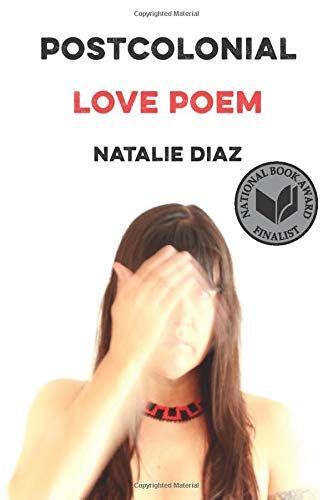
Postcolonial Love Poem Poems
WINNER OF THE 2021 PULITZER PRIZE IN POETRY FINALIST FOR THE 2020 NATIONAL BOOK AWARD FOR POETRY Natalie Diaz’s highly anticipated follow-up to When My Brother Was an Aztec, winner of an American Book Award Postcolonial Love Poem is an anthem of desire against erasure. Natalie Diaz’s brilliant second collection demands that every body carried in its pages—bodies of language, land, rivers, suffering brothers, enemies, and lovers—be touched and held as beloveds. Through these poems, the wounds inflicted by America onto an indigenous people are allowed to bloom pleasure and tenderness: “Let me call my anxiety, desire, then. / Let me call it, a garden.” In this new lyrical landscape, the bodies of indigenous, Latinx, black, and brown women are simultaneously the body politic and the body ecstatic. In claiming this autonomy of desire, language is pushed to its dark edges, the astonishing dunefields and forests where pleasure and love are both grief and joy, violence and sensuality. Diaz defies the conditions from which she writes, a nation whose creation predicated the diminishment and ultimate erasure of bodies like hers and the people she loves: “I am doing my best to not become a museum / of myself. I am doing my best to breathe in and out. // I am begging: Let me be lonely but not invisible.” Postcolonial Love Poem unravels notions of American goodness and creates something more powerful than hope—in it, a future is built, future being a matrix of the choices we make now, and in these poems, Diaz chooses love.
Reviews
Emma Younger@emmarain
azliana aziz@heartinidleness
mirza@yoonzuku
may@may003
Sharon Clay@sharone
elif sinem@prism
Shameera Nair Lin@therealsnl
Sabrina D. @readingsofaslinky
Ezra Alie@ezraa
Marion@mariorugu
Savannah Lowe@savyyloloreads
🪢@dictee
Joyce@j_k
Krys C@bearsbeetsbooks
Adriana Coppola@adrianaa
katrina montgomery@katlillie
Emma Bose@emmashanti
Hannah Swithinbank@hannahswiv
Duality Diva@dualitydiva
Shona Tiger@shonatiger
Ana Hein@anahein99
brynn@brynnn
Sage@tigerbalmreads
Ethan Hill@localhero
Highlights
Marion@mariorugu
Marion@mariorugu
Marion@mariorugu
Marion@mariorugu
Marion@mariorugu
🪢@dictee
Page 71